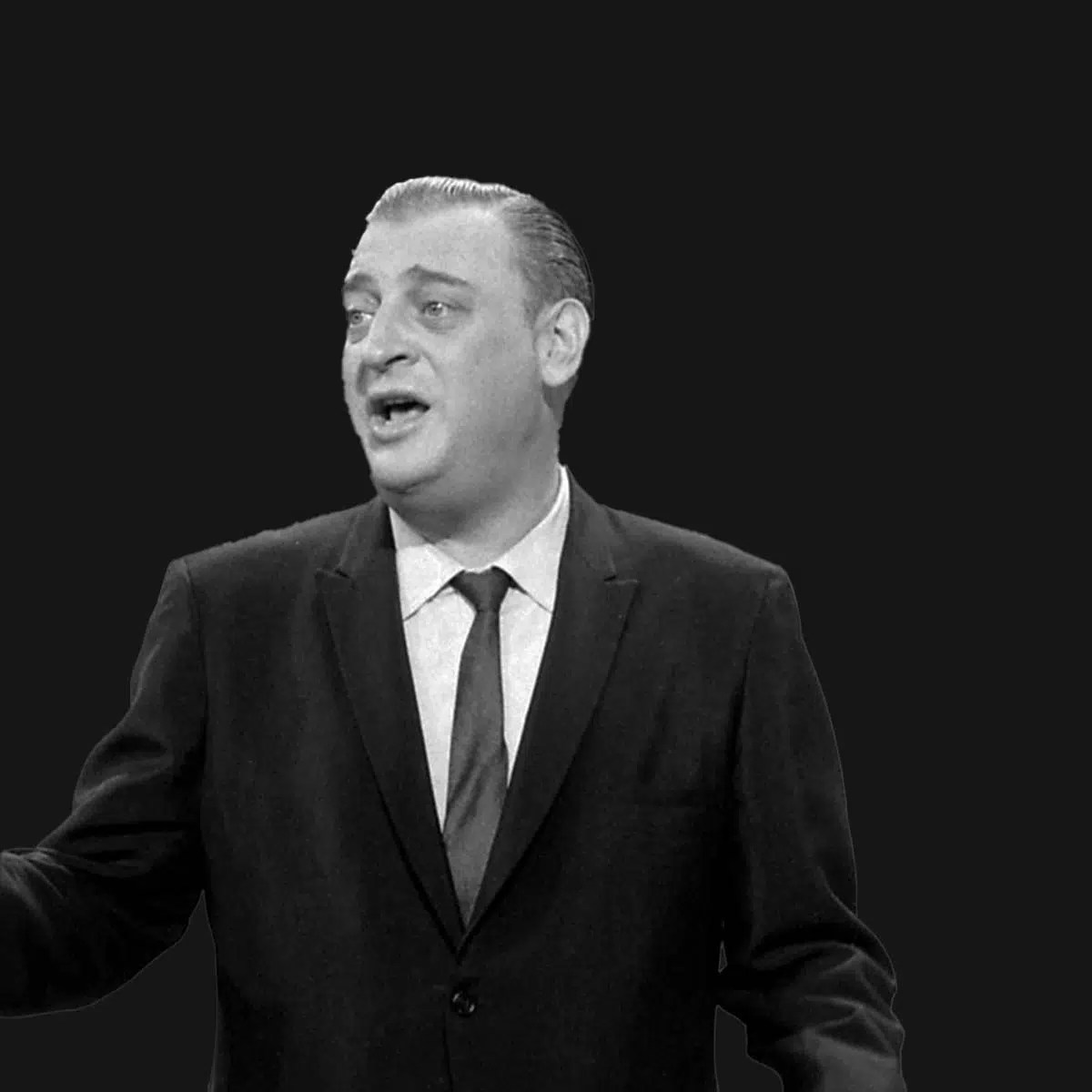Aside from his signature black suit and red tie, Rodney Dangerfield’s iconic catchphrase — “I don’t get no respect” — was the centerpiece of, not only his standup routines but also his award-winning career as a whole. In fact, his aptly titled comedy album, No Respect, even won a Grammy Award in 1981. The inspiration for the famous tagline, however, wasn’t exactly the laughing matter he turned into decades of keeping audiences in stitches and his unique brand of self-deprecating comedy, prior to his death in 2004 at age 82.
Dangerfield's Challenging Childhood: Growing Up 'Unloved and Unwanted'
Rodney Dangerfield, born Jacob Cohen, faced numerous challenges during his early years. He was born in Babylon, New York, and moved through various neighborhoods in New York City before settling in Kew Gardens, Queens, at the age of 10. His father, comic and juggler Phil Roy, abandoned the family shortly after Dangerfield’s birth, leading to a childhood described by his widow, Joan, as “unloved and unwanted.”
Dangerfield himself admitted that his upbringing lacked supervision. In his autobiography, Not Easy Bein' Me: A Lifetime of No Respect but Plenty of Sex and Drugs, he revealed a dark moment from his childhood when he was molested at the age of five. Reflecting on the impact of these experiences, he stated, “I don’t know. It affects everyone differently. I could have come out being a nicer person, or I could have come out being a nasty person. In my case, I guess I was born a very good person.”
Struggles and Early Jobs
To support his family, Dangerfield took on various jobs as a teenager. He juggled responsibilities that included selling ice cream, delivering groceries, and working at a newsstand. He even drove a fish truck and barked for the theater, showcasing a strong work ethic despite his tumultuous upbringing.
Joan, his widow, recounted a particular summer when his mother urged him to open a savings account to save for a football uniform, only to later take that money from him. This lack of affection and support only added to Dangerfield's feelings of isolation during his formative years.
The Birth of a Comedy Legend
In 2004, Dangerfield shared his thoughts on his life choices, expressing a desire for a “different mother, different father, different sister, different everything, but I’ll stay the same.” This sentiment underscores the profound impact his early experiences had on his later comedic persona.
A local historian, Carl Ballenas, noted that Dangerfield's childhood experiences, including facing anti-Semitism, deeply influenced his comedic style. The “no respect” theme emerged from his environment, laying the groundwork for his future performances and unique voice in comedy.
Finding Humor: 'I Don't Get No Respect' as a Coping Mechanism
As a way to cope with his difficult childhood, Dangerfield turned to comedy. By age 17, he began performing at local clubs and amateur nights, using humor as a shield against his pain. Ballenas noted that Dangerfield’s ability to make people laugh with him rather than at him became a defining aspect of his act.
Two years later, he legally changed his name to Rodney Dangerfield and committed to stand-up comedy full-time. It was during this period that he began to develop his iconic catchphrase, “I don’t get no respect,” which resonated with audiences around the world.
The Origin of the Catchphrase
In a 1986 interview, Dangerfield explained the origins of his catchphrase. He described a joke about hide-and-seek that led him to think about how to express feelings of neglect. He stated, “I thought, ‘Now what fits that joke?’ Well, ‘No one liked me’ was all right. But then I thought, a more profound thing would be, ‘I get no respect.’”
Interestingly, he picked up the phrase from mobsters during one of his shows. Fellow comedian Jack Benny later encouraged him, stating, “Your ‘no respect’ thing, that’s into the soul of everybody. Everybody can identify with that.” This insight solidified the catchphrase’s universal appeal, allowing Dangerfield to connect with audiences on a personal level.
The Climb to Fame: Cementing His Legacy in Comedy
After taking a 15-year hiatus from comedy to focus on family and work, Dangerfield returned to the stage at age 42. His big break came when he performed on The Ed Sullivan Show in the 1970s. This marked the beginning of a successful comeback, leading to regular appearances on The Dean Martin Show and The Tonight Show.
Dangerfield's “no respect” bit became a standout moment in his performances, capturing the essence of his comedic style. Following his resurgence in the 1970s, he appeared in several iconic films, including 1980’s Caddyshack and 1986’s Back to School.
A Lasting Impact on Comedy
Despite the challenges of his childhood, Rodney Dangerfield gained the respect and admiration of audiences by the time of his death in October 2004. His ability to transform personal pain into humor made him a beloved figure in the world of comedy.
Dangerfield’s legacy persists through his memorable performances and the timeless catchphrase that continues to resonate with people today. He remains an inspiration for comedians who seek to connect with their audiences through the art of stand-up.
Reflecting on a Comedic Icon
Rodney Dangerfield's life journey is a testament to the power of humor as a coping mechanism. By sharing his experiences and turning his struggles into laughter, he not only entertained millions but also provided a voice for those who felt similarly marginalized.
His story serves as a reminder that even in the face of adversity, we can find ways to laugh and connect with others. As audiences continue to celebrate his work, Dangerfield's message of resilience and humor lives on.
Unveiling The Life And Career Of Kate Winslet
The Evolution Of Western Films: From "The Great Train Robbery" To "Dances With Wolves"
Martha Graham: The Pioneer Of Modern Dance (1894-1991)


